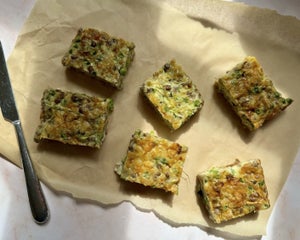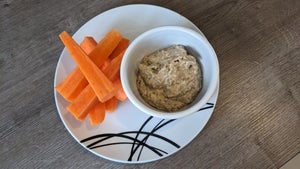Are Gut Health Supplements Safe for Children?
When it comes to our kids, their health and happiness are paramount. In fact, when we become parents, many of us will do just about anything to make sure our kids are living the healthiest lives they can. Even if that means doing a silly dance to convince a certain someone to eat a brussel sprout, or using your haggling skills to get them to promise to go bed at bedtime in exchange for a treat at the shops. Of course, they might not hold their word as the sun sets.
What our kids eat, how they sleep, and how much exercise they get are all important determiners of their overall health. We know a strong immune system that protects them against pathogens and illness (such as whatever’s going around at school – from colds to stomach flu) is important, too; and so is a healthy mind that is well-equipped to absorb all of the new information they’re learning every day. But there’s one important thing we shouldn’t forget, something that ties together all of these aspects of a child’s health. And hat thing is: your child’s gut health!
Everyone’s gut health plays an important role in their overall health – and this is true for us at all different stages of our lives. Nurturing your child’s gut health early can be done in a number of ways – from increasing their intake of healthy whole foods, to giving them a regular probiotic supplement. In this blog post, we’ll talk a bit more about the things you can do to nurture your child’s gut health, so you’re better equipped for supporting your child’s gut health and overall well-being.
Getting cultured
When a child is born via natural delivery, they are exposed to a range of critical microbes from Mum as they exit the birth canal.[1] These microbes, also known as probiotics, colonise a child’s gut and help them to stay healthy throughout their life[2] by supporting immune function and other aspects of their health.
For children born via caesarean section, the story is a little different. These babies aren’t exposed to as many probiotics on their way out of Mum’s body as they enter the world for the first time. C-section babies tend to have fewer Lactobacillus and other strains of bacteria in their gut microbiome as compared to babies delivered via natural birth.[3] According to Science.org, this may increase their risk of “developing certain health conditions and developmental disorders.”[4]
One way to remedy this lack of exposure to the bacteria they need is to make sure the child receives probiotics in another way.
Some of the ways we can support a child’s gut microbiome include:
A microbe swab
Although further research on the topic is needed, some promising scientific studies have suggested that swabbing C-section babies with a sample of microbes from Mum could have a number of benefits – including helping with the child’s development of motor skills and communication skills.[5]
Feeding your kids a range of whole foods
Once your child starts eating solid food, it’s important to make sure they are getting a good range of nutrients from their diet. Not only is this important for their healthy development, including building healthy bones and supporting the developing brain, these foods are also often full of both prebiotics and probiotics – which are known to have numerous positive effects on a child’s overall health.[6]
Some foods are higher in probiotics (also known as good bacteria) than others. Fermented foods, like sauerkraut are high in probiotics. Yogurt and kefir also contain probiotics – but the number of strains of good bacteria in the yogurt or kefir you buy will depend on the brand and how it’s made. You can also try your hand at making your own yogurt at home!
Prebiotic foods are important too – as prebiotics act as an energy source for the good bacteria in the gut.
Probiotic supplements
There are few things more difficult than getting a child to eat healthy foods – and getting them to try fermented foods may be even harder. Kefir? Never. Sauerkraut? Think again. You’ve tried hiding dark, leafy greens in your child’s pasta or their sandwiches, and maybe you’ve even put some kefir in their smoothies – but for the days you just can’t get your kids to eat the things you give them, you can call for back-up.
By back-up, we mean probiotic supplements.
For adults and children alike, taking a regular probiotic supplement can help support good bacteria in the gut microbiome, as well as supporting overall physical health and mental well-being.There are many specialised probiotic supplements available that are designed just for children. For adults taking probiotics, they would normally be taken in pill form. For kids, just about every pill is a hard pill to swallow – so probiotics in tablet or pill form aren’t always a real option for them. That’s why probiotics for children exist in sachet form, so they can be easily mixed into food or drinks – to make taking probiotics easy for children. Probiotics can also be found in chewable form, like our chewable Alforex, which is suitable for kids above the age of three.
The A-Z of probiotics and a child’s gut health
After a particularly messy play session out in the mud, you might be thinking, your child doesn’t need any more bacteria in their body – they’re a living, walking, breathing microbiome all on their own! But probiotics may pose many potential benefits for a child’s health – so bring on the bacteria, as long as it’s the good kind.
Nurturing healthy digestion and overall gut health from an early age is an important thing to focus on when it comes to our kids. That’s because in the grand story of your child's health, the gut health plays a significant role.
Remember to consult with your child's paediatrician before starting any new supplements, and always prioritise a balanced diet rich in probiotic foods like yogurt and kefir.
Antibiotics and probiotics
Numerous studies have associated antibiotic use with a disruption of the delicate balance of bacteria in the gut, including less gut microbiome diversity.[7] This condition of an unbalanced gut microbiome is called dysbiosis. Dysbiosis has been associated with a series of conditions in children, including asthma, juvenile arthritis, type 1 diabetes, and Crohn’s disease.[8]
Taking probiotics may help support a child’s gut health after they have taken a round of antibiotics as prescribed by their doctor, by reintroducing helpful bacterial strains into the gut microbiome.
Immunity and the gut
As a child’s gut microbiome develops, so does their immune system. While the gut is a sterile environment before birth, once a child is born, they are exposed to a range of gut-colonising bacteria. As children grow, their bodies begin to recognise which bacteria are ‘good’ and ‘bad’ for the body, and develop appropriate immune response.[9] Studies suggest that an early introduction to probiotics plays an important positive role in developing a child’s immune function for later in life.[10]
Nurturing healthy digestion with the right gut health supplement for your child
A probiotic supplement for kids also needs to be easy to take and packed with the right bacterial strains that best support them as they grow.
When selecting a probiotic supplement for your child, make sure it contains strains like Lactobacillus, one of the most studied probiotics with promising positive impacts on a child’s gut health. Many studies have shown that administering Lactobacillus may reduce diarrhoea in children.[11]
There's a huge variety of probiotic supplements available for kids. For children under the age of three, tablets aren’t a safe choice, and probiotic sachets should be used instead. As children grow up, chewable tablets are a great option. When it comes to probiotics, there's something for every little tummy.
Sources:
[1] https://www.science.org/content/article/swabbing-c-section-babies-mom-s-microbes-can-restore-healthy-bacteria#:~:text=A%20baby%20born%20through%20the,health%20conditions%20and%20developmental%20disorders.
[2] https://www.science.org/content/article/swabbing-c-section-babies-mom-s-microbes-can-restore-healthy-bacteria#:~:text=A%20baby%20born%20through%20the,health%20conditions%20and%20developmental%20disorders.
[3] https://www.science.org/content/article/swabbing-c-section-babies-mom-s-microbes-can-restore-healthy-bacteria#:~:text=A%20baby%20born%20through%20the,health%20conditions%20and%20developmental%20disorders.
[4] https://www.science.org/content/article/swabbing-c-section-babies-mom-s-microbes-can-restore-healthy-bacteria#:~:text=A%20baby%20born%20through%20the,health%20conditions%20and%20developmental%20disorders.
[5] https://www.science.org/content/article/swabbing-c-section-babies-mom-s-microbes-can-restore-healthy-bacteria#:~:text=A%20baby%20born%20through%20the,health%20conditions%20and%20developmental%20disorders.
[6] https://www.healthline.com/health/parenting/probiotics-for-children#supplements-vs-probiotic-foods
[7] https://www.ncbi.nlm.nih.gov/pmc/articles/PMC7928022/
[8] https://www.ncbi.nlm.nih.gov/pmc/articles/PMC7928022/
[9] https://www.uspharmacist.com/article/the-role-of-probiotics-in-children-with-gastrointestinal-disease
[10] https://www.uspharmacist.com/article/the-role-of-probiotics-in-children-with-gastrointestinal-disease
[11] https://www.uspharmacist.com/article/the-role-of-probiotics-in-children-with-gastrointestinal-disease
Related Articles







